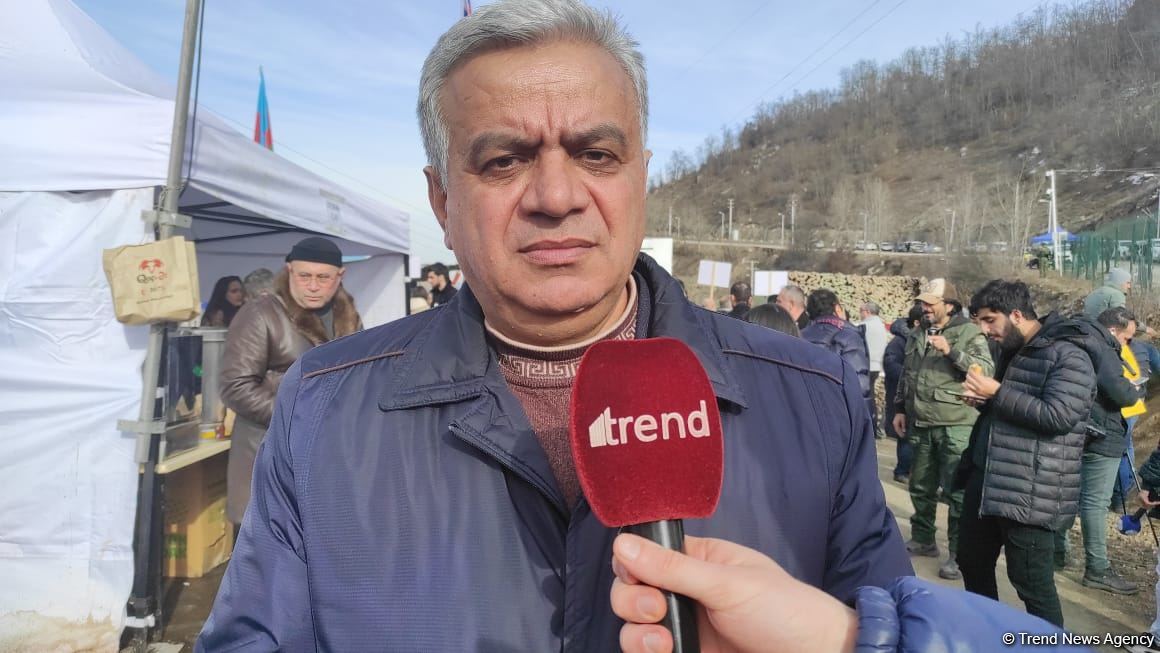SHUSHA, Azerbaijan, December 15. The area of illegal exploitation of the ‘Damirli’ iron ore and copper-molybdenum deposit in Azerbaijan has grown by two times over the year, Head of the Department of Zoology and Physiology at Baku State University Abulfaz Taghiyev said at the peaceful rally of Azerbaijan's non-governmental organizations (NGOs) on December 15 near Shusha, Trend reports from the scene.
According to Taghiyev, the rally is aimed at conveying to the opposite side the necessity to put an end to this ecological terror.
He emphasized that the ores mined in the deposit’s territory were rapidly plundered.
"As a result of the exploitation, the ecological state of this territory has deteriorated. We inform Armenian citizens of Azerbaijan living in Karabakh that the deterioration of the ecological situation will primarily negatively affect them,” the head of department noted.
“Our main goal is to convey this to them, and we’ll continue our peaceful rally until achievement of this goal," Taghiyev said.
The representatives of Azerbaijani non-governmental organizations have been protesting close to the post of Russian peacekeepers [temporarily stationed in Azerbaijan in accordance with trilateral statement signed between Azerbaijani, Armenian and Russian leaders following the 2020 Second Karabakh War] against the inadmissibility of Azerbaijani specialists to the territory, to monitor the illegal exploitation of deposits in the area of stationing the peacekeepers.
Previously, following the negotiations with the Russian peacekeepers' command on December 3 and 7, 2022, a group of experts from the Ministry of Ecology and Natural Resources, the State Property Service under the Ministry of Economy, and AzerGold CJSC on December 10, was going to begin the preliminary monitoring in accordance with the illegal exploitation of mineral deposits, as well as the emerging environmental and other consequences of this on the territory of Azerbaijan.
It was planned to inspect the environmental conditions at the 'Gizilbulagh' gold deposit and the 'Damirli' copper-molybdenum deposit, monitor various areas, organize cadastral property records, assess potential risks and threats to the environment, as well as to underground and surface water sources.
However, despite the group's arrival, accompanied by Russian peacekeepers, in the monitoring area, it faced provocations. The planned initial inspection and monitoring did not take place due to the fact that the Russian peacekeepers not only did not create necessary conditions, but also prevented for the entire process to carry on.






